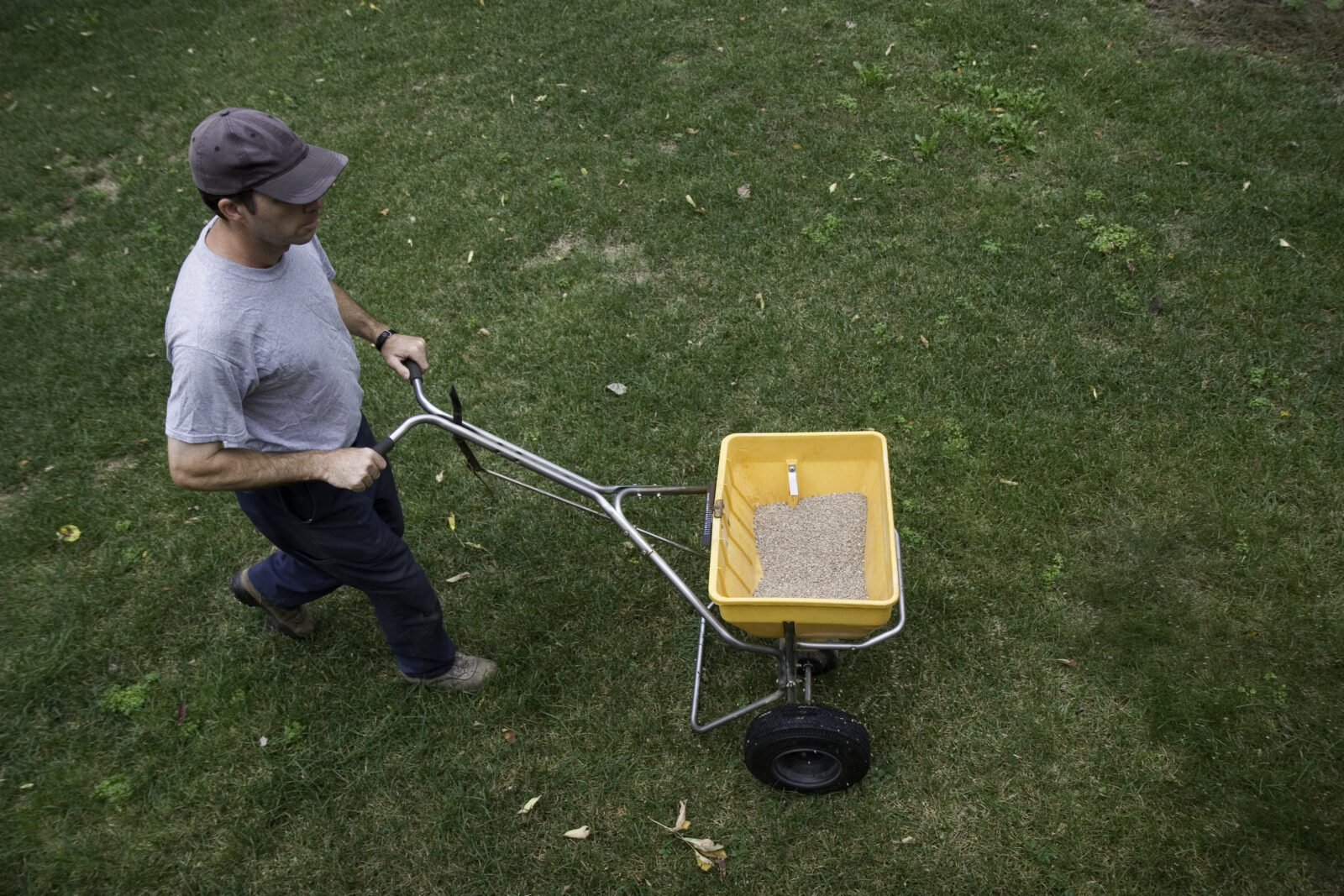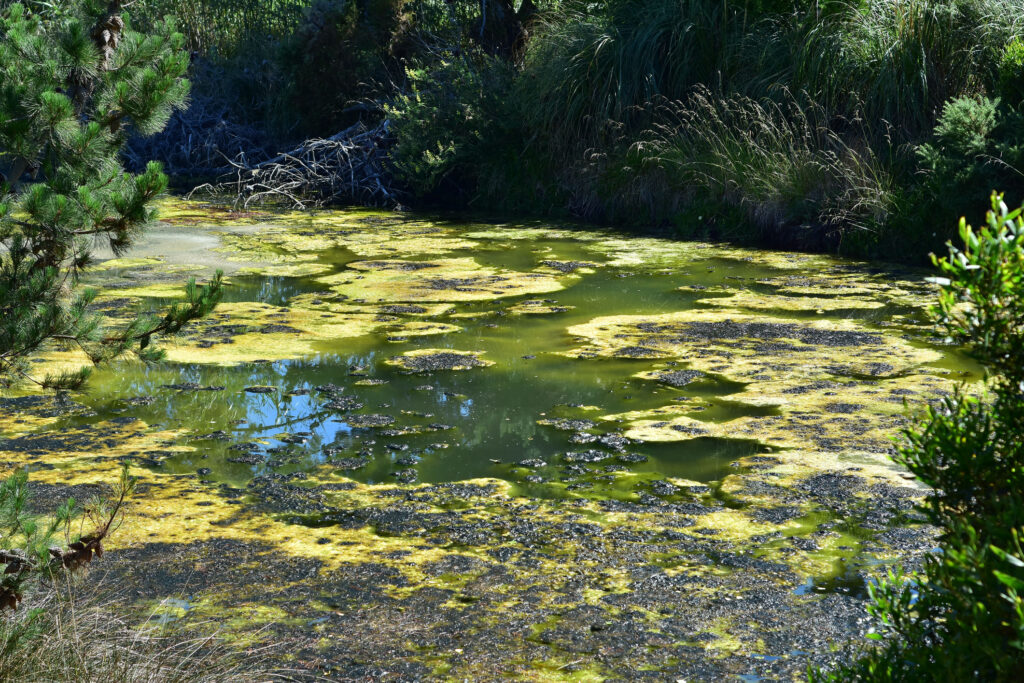Fertilize Lawns and Gardens Carefully To Avoid Nutrient Pollution
 April 13, 2023
April 13, 2023Spring is in full swing, and many of us are getting our lawns and gardens ready for the growing season.
One springtime ritual, however, regularly leads to green, polluted waterways: over-fertilization of lawns and gardens. Plant fertilizers contain nitrogen and phosphorus, nutrients that are major sources of pollution in waterways.

When too much fertilizer is applied to lawns, gardens, and farm fields, the nutrients can run off into local storm drains or into streams, ponds and rivers. Excess nutrients also seep into groundwater sources.
The nutrients cause toxic algae blooms (left) in surface water, killing fish, waterfowl, and other aquatic creatures in the process. Blue-green algae can also be toxic to humans, pets, livestock and other animals.
Here are a few tips from the Penn State Extension office (and others) to minimize water pollution when you get your greenery growing this year:
- Take a soil test to determine what nutrients your plants need. Plants and lawns may not require as much fertilizer as you think.
- Use natural fertilizers and time it right. Don’t fertilize right before it’s going to rain.
- Use compost or slow release fertilizer on lawn areas; they release nutrients at a pace that allows plants to absorb them.
- Leave grass clippings on your lawn to compost naturally—they’re a great source of nitrogen.
- Sweep fertilizer off paved areas and rinse fertilizer spreaders on the lawn so that fertilizer can be absorbed by the grass rather than being lost to runoff.
- Build a rain garden to collect storm water.
- Install a rain barrel system and use the collected water for irrigation.
- Plant trees and shrubs along streams and riverbanks to avoid erosion.
- Avoid concrete and asphalt and use permeable options when possible to allow water to soak into, instead of running off of, the ground. This will also help reduce heat retention.
- Start a compost pile and use the end result to fertilize your lawn and garden.
- Don’t overwater — water only when your garden needs it.
- Spruce up your sprinklers for Spring! You’ll save money and conserve water.